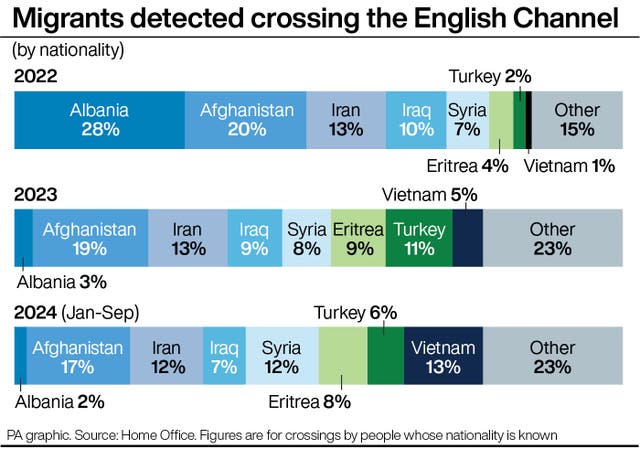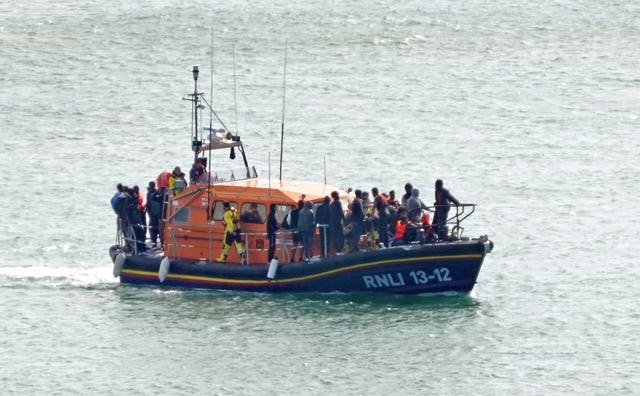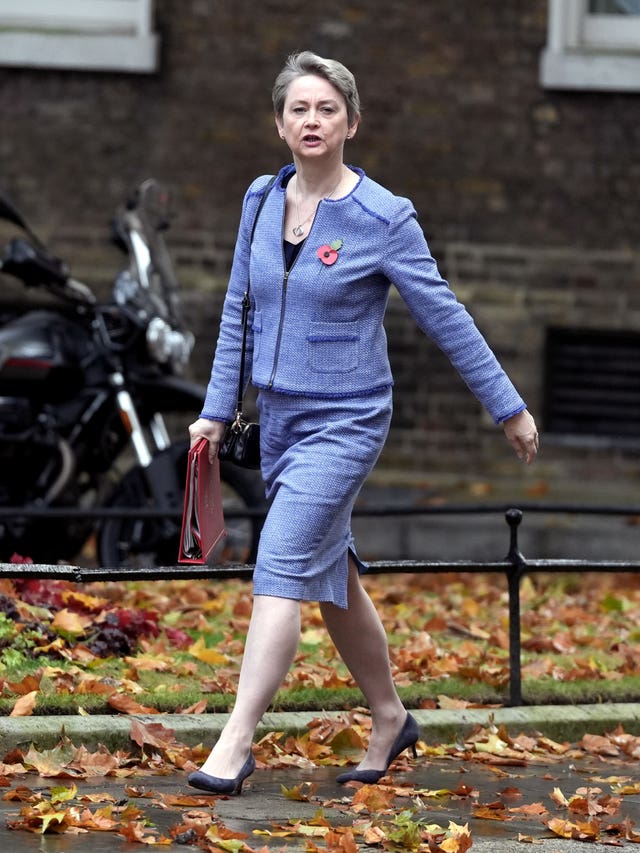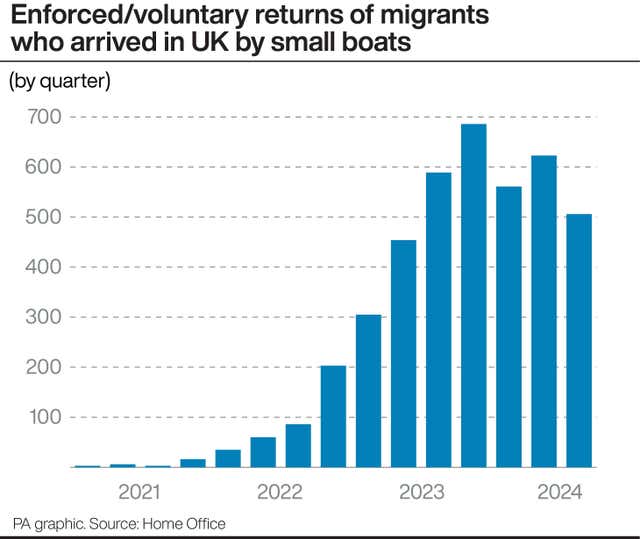More than 20,000 migrants have arrived in the UK after crossing the English Channel since Sir Keir Starmer became Prime Minister, figures have confirmed.
Home Office data published on Monday shows 122 people made the journey on Sunday in two boats. This suggests an average of 61 people per boat.
It means 20,110 crossings have been recorded since the Labour leader walked into Number 10 in July after his party won the general election, with the milestone coming on his 150th day in office.

The latest crossings come as Home Secretary Yvette Cooper is set to make a statement on immigration in the Commons on Monday afternoon.
There were 50,637 arrivals during Rishi Sunak’s 20-month premiership, which began on October 25 2022.
He saw 11,309 migrants arrive within his first 150 days of being in charge of the country.
It took around eight-and-a-half months for migrant crossings to top 20,000 after Mr Sunak became prime minister and this number was reached on his 257th day in office.
His tenure began in the autumn, meaning his first few months in power coincided with winter weather conditions when typically fewer crossings take place.
By contrast, Sir Keir took on the role in the middle of the summer period when crossing numbers are usually at their highest and most frequent amid spells of better weather.
It took just under five months for migrant crossings to hit 20,000 after he came to power.
The Government continued to lay blame at the door of previous Conservative administrations for failing to curb Channel crossings, with Downing Street insisting fresh efforts to tackle them are starting to show results.

The Prime Minister’s official spokesman said: “This Government inherited a system in chaos. The worst start to a year on record for small boats, higher even than the record year in 2022 – that’s the situation the Government inherited.
“But we’ve put forward a serious plan to bring order to the system, and you’re starting to see some of that bear fruit.”
2024 saw a record number of crossings in the first three months of the year, as did the period between January and June.
Labour sources said the weather played a “significant part” in the numbers, citing Home Office analysis they claimed showed that October 11 to November 10 saw the “highest ever ratio” of so-called red days in a month-long period – when weather conditions are considered to make crossings likely or very likely.
This saw 26 out of the 31 days classed as likely to see Channel crossings compared to three red days for the same dates last year.
Some 6,288 migrants crossed the Channel between those dates, compared to 768 in the same period last year.
The latest crossings are the first since November 16, marking a 14-day hiatus in activity amid bad weather.
That was the longest period without crossings so far this year and means November saw the lowest monthly total for arrivals since Sir Keir became Prime Minister.
Prior to that, the longest gap in activity was 27 days between December 17 last year and January 12 2024.
The record for the longest break in crossings – since daily data started being counted when the crisis unfolded seven years ago – is 48 days between September 2 and October 19 2018.
The first arrivals in December take the provisional total for the year so far to 33,684, PA news agency analysis of the figures shows.
This is up 18% on this time last year (28,453) but down 24% on 2022 (44,174), which was a record high year for crossings.
Last week, the Prime Minister announced a major overhaul of the immigration system and accused the Conservatives of running “a one-nation experiment in open borders” amid concerns over the number of people legally arriving in the UK. He is expected to set out a plan later this week.
Sir Keir said his Government had inherited an “utter mess” in the Home Office and new Tory leader Kemi Badenoch admitted her party had failed on migration.

The Prime Minister told a Downing Street press conference on Thursday: “Let me say directly to the people watching: where the last government failed you, this one will not. They drove immigration numbers up. We will get them down.”
At the same time, figures revealed the cost of the UK’s asylum system has risen to £5 billion, the highest level of Home Office spending on record and up by more than a third in a year.
Other data showed 35,651 asylum seekers were being housed in UK hotels at the end of September, up more than 6,000 since the end of June, signalling the first quarterly rise for a year.
Meanwhile, Ms Cooper announced a “landmark” deal with Iraq, intended to crack down on people smuggling and boost border security.
The Prime Minister has put international co-operation with law enforcement agencies in Europe at the heart of his bid to cut the number of arrivals.
He previously said his Government “inherited a very bad position” with record numbers of migrants in the first half of the year “because the entire focus until we had the election was on a gimmick, the Rwanda gimmick, and not enough attention was on taking down the gangs that are running this vile trade”.
But “if the boats and the engines aren’t available, it obviously makes it much more difficult for these crossings to be made”.
His comments came after he vowed to “treat people smugglers like terrorists” as he announced extra cash for his border security command.

Ms Cooper has so far not committed to a target or timeframe for curbing Channel crossings but pledged the Government will “try and make progress as rapidly as possible”.
Addressing MPs later, Ms Cooper is expected to contrast the Government’s strategy with the record of her predecessors who she will accuse of losing control of every aspect of the immigration and asylum system, Labour sources said as they vowed they would “not repeat those same mistakes, and nor will we let the Tories forget them”.
The National Crime Agency has said it is leading around 70 live investigations into organised immigration crime or human trafficking.
Some 50 people have died while trying to cross the Channel this year, according to incidents recorded by the French coastguard in what is considered the deadliest year since the crisis unfolded.
The International Organisation for Migration (IOM) has also reported several more migrant deaths believed to be linked to crossing attempts so far in 2024.




Comments: Our rules
We want our comments to be a lively and valuable part of our community - a place where readers can debate and engage with the most important local issues. The ability to comment on our stories is a privilege, not a right, however, and that privilege may be withdrawn if it is abused or misused.
Please report any comments that break our rules.
Read the rules hereLast Updated:
Report this comment Cancel